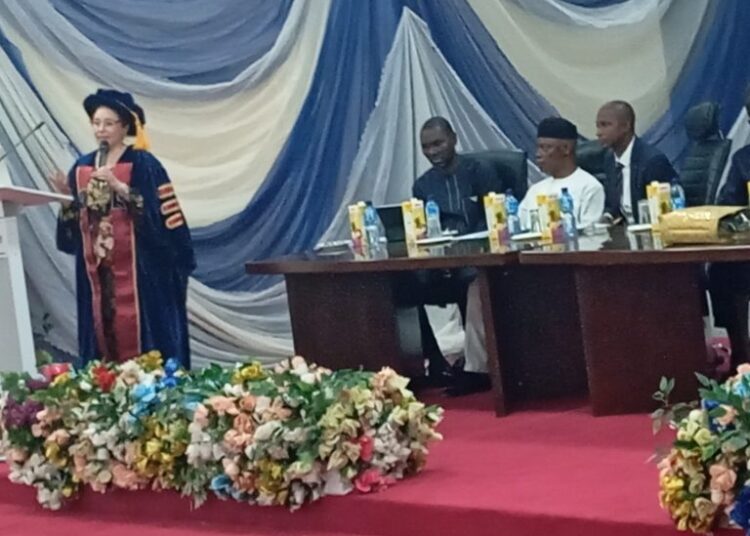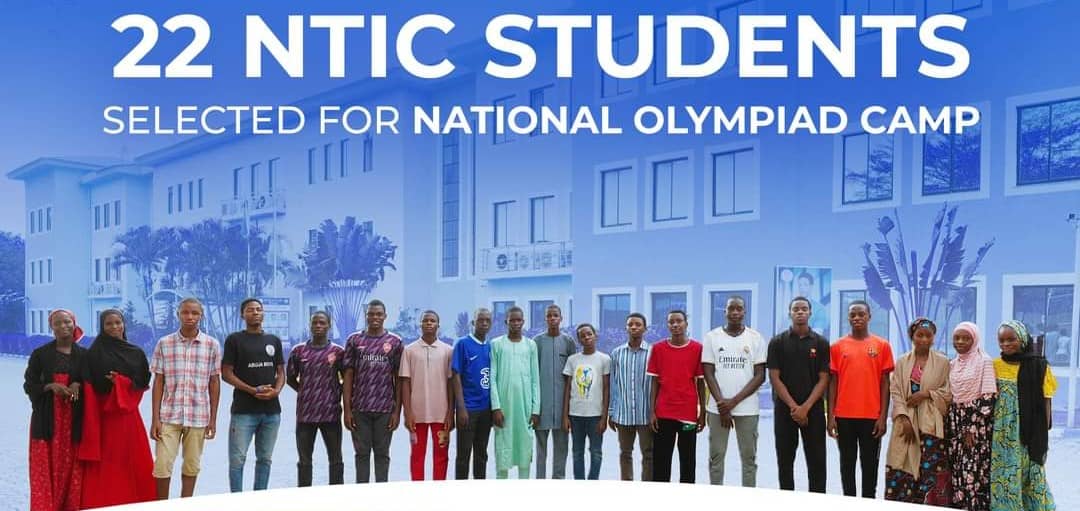Education
Group worries over rot in the Nigeria’s Education Sector

****Tasks FG to mitigate it urgently
The National Association of Seadogs, Pyrates Confraternity, has raised issues over the dwindling fortune in the education sector in the country that has put the figure of out of school children at 20million
The association called for urgent measures to be adopted to stop the negative trend
A statement issued by
Abiola Owoaje, in Abuja on behalf of the association on the occasion of the International Day of Education 2023, attributed the decay to poor budgetary allocation to education, the impact of banditry and terrorism and poor government policies.
He asked the relevant government at all levels to collectively declare a state of emergency in the education sector to address the rot.
The statement entitled,” At a Crossroads – The Time to Act is Now! reads in part:” The astronomical out-of-school numbers in Nigeria can be said to be as a result of multiple factors, chiefly, the adverse impact of perennial terrorism and banditry on education, especially in the northern Nigeria, and the cavalier attitude with which governments across board have handled issues pertaining to education – from budgeting to matters of policy formulation and implementation.
“We are aware that a lot of the issues bedevilling education in Nigeria persisted because of a disturbing lack of political strategy, and political will, in the scanty instances where a semblance of such strategy exists.
“Governments, over the years, have continued to allocate paltry percentages of the yearly national budget to education, in spite of United Nations Education Scientific and Cultural Organisation, (UNESCO)’s persistent recommendation of at least 15 – 20%. In the last 8 years, Nigeria’s education budget has hovered between a meagre 5.68% and 8.8% of the national budget.
“Allocating 8.8% of this year’s budget to education may look like an improvement on previous years, but in the face of the odds that continue to mount, it can best be described as perfunctory.
“In the wake of the devastation caused by lockdowns and lost school time occasioned by the Covid-19 pandemic, crippling insecurity, a chronic dearth of infrastructure, declining quality of curriculum and teaching, and worsening out-of-school statistics, we urge the Federal Government of Nigeria to immediately declare a state of emergency in the education sector.
“We strongly recommend that the Better Education Service Delivery For All, which was rolled out by the Federal Government in 2018, and which has reportedly ensured the enrolment of over 1 million out of school children, needs to be re-evaluated and primed for improved results.
“The Alternative School Programme, which came on stream in January 2021 as a federal government education and social welfare programme for pupils has not quite made the much needed impact beyond the pageantry of its inauguration day. “The Federal Government of Nigeria should lead from the front in ensuring qualitative, affordable and compulsory education for a young demographic bursting at the seams, and upon whose frail shoulders the very future of the country rests.
“The rankling dishonesty that characterised the government’s handling of the recent industrial action by public university lecturers does not present much hope.
“The International Day of Education is another opportune moment for all stakeholders to reflect and redouble their efforts to ensure that the future of present and future generations is secured.
“The approach has to be holistic and sincere, else we run a grave risk of contending with tens of millions of young people, bereft of formal education, unable to compete with peers across the world, and cannon fodder for all sorts of social vices.
“Anything short of a concerted effort, hinged on increased funding and a collective will to see plans to fruition, will come back to bite one and all.”
Education
Don urges teachers to learn, deploy AI tools in teaching

By Friday Idachaba, Lokoja.
Professor Kehinde Victoria Fatokun, a Professor of Science Education, has called on teachers to adapt to changes, learn and deploy Artificial Intelligence (AI) tools in the teaching profession.
Prof. Fatokun made the call at the 18th Inaugural Lecture series of the Federal University Lokoja (FUL) as part of her advocacy for resourceful teaching and productive learning.
The Inaugural Lecture had the topic: “Transforming Chemistry Instructional Practices: Navigating through Resolving Learning Intricacies and Integration of Innovative Pedagogy.”
She said that the world was evolving as methods and procedures continue to change with innovations and technological breakthroughs adding that the teaching profession should also adopt new technologies including the Artificial intelligence tools.
The Professor of Science Education called for the development of intensive research and knowledge transfer culture, permeating all teaching and learning activities.
She said that the development of appropriate skills in students should be paramount and learning should be made appealing to them, in order to produce competent graduates.
Prof. Fatokun stressed that Educational research findings on current pedagogical issues should not be ‘kept in the shelf’ but be made available to the ‘implementer’ in an applicable manner for solving most of the instructional challenges they often encounter.
The former HoD, Department of Science Education, Anchor University, Lagos, tasked Curriculum developers and Authors to strive at tackling issues of “difficult concepts” during curriculum reviews with the application of novel approaches.
She suggested that emphasis should be placed on simplifying instruction to demystify misconceptions while there should be flexibility in adapting the curriculum content to the global trend.
“Published books should be clear, simple to understand and all ambiguity that create additional learning concerns should be removed”, she urged.
She however urged the FUL Management team to organize workshops for all teaching staff with the aim of familiarizing them with innovations in teaching especially the use of modern techniques and learning technologies for their pedagogical skill development.
She charged the Quality assurance directorate to ensure proper monitoring of academics through specific metrics to ensure quality teaching.
Prof. Fatokun charged students to be intentional about learning, not just cramming and passing examinations adding that conscious effort should be made henceforth to ensure understanding and retention to aid the application of the knowledge gained.
Speaking earlier, the
Vice-Chancellor of the University, Prof. Olayemi Akinwumi noted that the Inaugural Lecture series of the University had become “a beacon of intellectual discourse and academic excellence, showcasing the groundbreaking research and innovative thinking of our academic Staff.”
He described the Lecture topic, “Transforming Chemistry Instructional Practices: Navigating through Resolving Learning Intricacies and Integration of Innovative Pedagogy,” as both timely and apt.
The Vice-Chancellor noted that in navigating the complexities of modern education, the need to evolve teaching methodologies that would better address the diverse learning needs of students had never been more pressing.
“In the rapidly changing landscape of higher education, the integration of innovative pedagogy is crucial for preparing our students to meet the demands of the future”, he said.
The Vice-Chancellor who declared the Lecturer as “Discharged and Acquitted” after the delivery, described the 18th Inaugural Lecture as much a celebration of Prof. Fatokun’s achievements as it is “a testament to her collective contributions.” (Ends)
Education
Inculcate critical thinking, Inspire, guide your Students – Poland Ambassador tasks teachers

By Friday Idachaba, Lokoja.
Ambassador of Poland to Nigeria, Her Excellency, Ambassador Joanna Tarnawska has called on teachers to encourage critical thinking, inspire and guide their students or listeners to become innovative problem solvers.
Tarnawska made the call as a Guest Lecturer at the 6th Distinguished Public Lecture of Federal University Lokoja titled: “How to Effectively Pass Knowledge and Inspire Students in the Contemporary World.”
The Guest Lecturer said gone are the days when teachers were seen as encyclopedia and repository of knowledge. saying, “A teacher is not an encyclopedia anymore, a teacher is a book mark, a beacon who points to the relevant paragraph.”
Tarnawska stressed that teachers must be well grounded and knowledgeable in their respective disciplines, and urged them to guide, teach on how best to gather information and get the gist.
She said, “Know your subject matter and be ready to deepen your knowledge continuously, Know your audience, adapt your language and content to the listeners.
The Envoy said that with the influx and abundance of information with the world turned a global village, it is important to know the authentic from the fake and safekeep facts, especially now that everything can be checked online.
“Encourage questions, building an atmosphere of trust will be helpful to achieve this. Modern lessons should not only be teacher centered, Keep a balance and make time for student centered lessons.
“Never ask the question, “Do you understand?”, instead, ask questions to check your students understanding, always give practical examples,
be engaging and make sure your listeners are following you”, she said.
Speaking earlier in his address, Prof. Olayemi Akinwumi, Vice-Chancellor of Federal University Lokoja, commended Ambassador Joanna Tarnawska for the promptness with which she accepted to deliver the Distinguished Public Lecture.
Prof. Akinwumi noted that the topic of the lecture, “How to Effectively Pass Knowledge and Inspire Students in the Contemporary World” is not just timely but imperative.
He said, “In an era marked by rapid technological advancements, societal transformations, and global interconnectedness, the role of education transcends mere dissemination of facts.
“It therefore behoves upon us to instill in our students a hunger for knowledge, a love for learning, and a sense of purpose that extends beyond classroom boundaries.”
The Professor of History said as Vice-Chancellor of the esteemed institution, he was keenly aware of the profound impact that effective teaching and inspirational mentorship can have on the lives of our students.
Akinwumi urged all stakeholders to reflect on how we can collectively shape the future of Education, and recommit to the noble pursuit of empowering the next generation of leaders and innovators.
He enjoined all to embrace the spirit of collaboration, innovation, and lifelong learning as we listen to the lecture together. (Ends)
Education
22 NTIC students to participate in 3-day NMC’s Olympaid Camp

The National Mathematical Centre (NMC) has selected 22 students of the Nigerian Tulip International Colleges (NTIC) to participate in a 3-day Olympiad Camp.
The Olympiad competition covers subjects such as Mathematics, Science, Arts, Music, Literature, History, Culture, Information Communication Technology among others.
The Managing Director NTIC, Feyzullah Bilgin, in a statement on Tuesday said, “In a remarkable display of academic prowess, 22 students from Nigerian Tulip International Colleges in Nigeria have been handpicked by the prestigious National Mathematical Centre (NMC) to participate in a rigorous 3-day Olympiad Camp.
“The selection of these bright minds not only highlights their exceptional mathematical abilities but also underscores the dedication and commitment they have shown towards their education.”
-

 Crime7 months ago
Crime7 months agoPolice nabs Killer of Varsity Lecturer in Niger
-

 News4 months ago
News4 months agoFCT-IRS tells socialite Aisha Achimugu not to forget to file her annual returns
-

 Appointment8 months ago
Appointment8 months agoTinubu names El-Rufai, Tope Fasua, others in New appointments
-

 News From Kogi7 months ago
News From Kogi7 months agoINEC cancells election in 67 polling units in Ogori-Magongo in Kogi
-

 News From Kogi9 months ago
News From Kogi9 months agoEchocho Challenges Tribunal Judgment ordering rerun in 94 polling units
-

 News8 months ago
News8 months agoIPOB: Simon Ekpa gives reason for seperatists clamour for Biafra
-

 Metro2 months ago
Metro2 months ago‘Listing Simon Ekpa among wanted persons by Nigeria military is rascality, intimidation’
-

 News5 months ago
News5 months agoKingmakers of Igu/ Koton-Karfe dare Bello, urge him to reverse deposition of Ohimege-Igu

